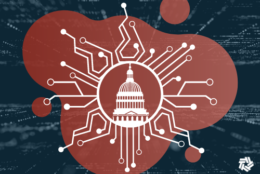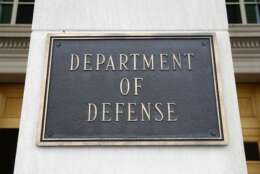IT Modernization
-
The Commerce Department's inspector general is hiring fast to oversee billions of dollars in CHIPS Act spending.
March 24, 2023 -
Dave Lago, a product manager for DISA's Hosting and Compute Center, said the Vulcan tool set includes several commercial software capabilities to help DoD modernize software.
March 24, 2023 -
The Office of Personnel Management still has a lot of rebuilding to do. The Trump administration tried to roll its functions into the White House and GSA.
March 24, 2023 -
Dorothy Aronson, NSF’s chief information officer and soon-to-be chief data officer, said the agency has created a central repository of low-code and no-code tools that employees have created to improve and automate their own workflows, to share them across the organization.
March 22, 2023 -
Federal agencies are starting to reap the benefits of digital modernization, resulting in stronger digital solutions, increased efficiency, and future-proofed systems. While these are significant strides, there are several key areas where agencies still have…
March 17, 2023 -
Among heated questions about federal telework, the House Oversight and Accountability Committee urged Office of Personnel Management Director to make improvements to retirement services, the Federal Employees Health Benefits (FEHB) Program and the federal hiring process.
March 17, 2023 -
This past fall, Juliana Vida from Splunk wrote a piece exploring the value that full observability can bring to government IT organizations as they strive to achieve end-to-end visibility across their entire hybrid technology landscape, including both on-premise and fully cloud-based environments.
March 16, 2023 -
VA is telling Congress it understands what went wrong in previous deployments of its new Electronic Health Record, and is confident short-term fixes will allow the agency to resume the project.
March 16, 2023 -
Gundeep Ahluwalia, the chief information officer for the Labor Department, said three funding sources, two-year appropriations, a working capital fund and the Technology Modernization Fund, is giving the agency the resources to move to the cloud.
March 16, 2023 -
The cloud and data branch lives in the C5I Service Center in the Coast Guard. The C5I Service Center provides all IT development and support services for the entire Coast Guard infrastructure.
March 15, 2023 -
The fifth annual Defense Department-wide financial audit, its most recent, required that independent accountants look at an organization with roughly 2.9 million people and $3.5 trillion in assets.
March 14, 2023 -
Acquisition officials, especially in the Defense Department, worry about why the roster of would-be federal contractors seems to contract every year. Small companies in particular seem to be departing. If could be, the ever-expanding list of rules are driving them away.
March 14, 2023 -
This week marks a significant milestone for the Technology Modernization Fund (TMF) — the five-year anniversary. The TMF, an innovative funding model for federal technology modernization projects, has grown and expanded significantly since its humble beginnings.
March 14, 2023 -
Cloud by design can help agencies navigate hybrid cloud to control costs, maximize performance, and ensure security.
March 09, 2023 -
A whole new world is coming to the federal government: a virtual world. Thanks to advancements in artificial intelligence, the internet of things, 5G, and more, augmented and virtual reality — commonly called "extended reality" (XR) — is transforming how agencies deliver services, train warfighters, conduct operations in the field, and operate remotely.
March 08, 2023















